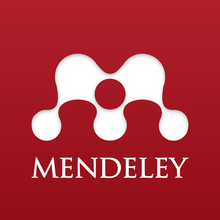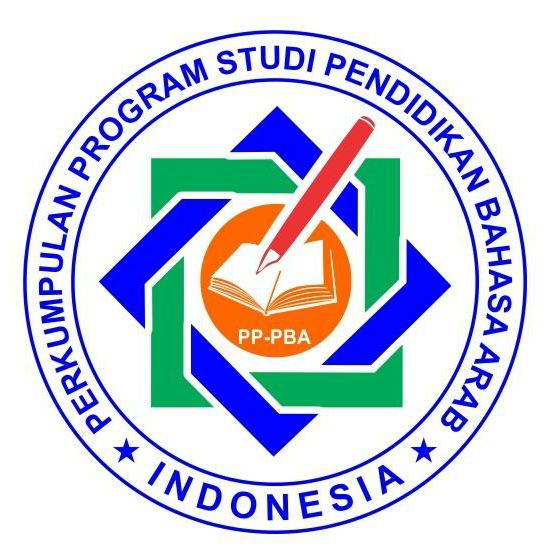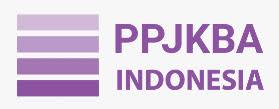The Interaction of Elderly Individuals in Learning to Read the Qur'an
DOI:
https://doi.org/10.37680/aphorisme.v6i1.7366Keywords:
Elderly, Learning Motivation, Qur’anic LearningAbstract
This study aims to examine the interaction of elderly individuals in learning to read the Qur’an, particularly in the context of the implementation of Surah Al-Qamar, verse 17. It also analyzes the teaching strategies employed, the symbolic interaction between participants and the Qur’an, and the learning motivation among elderly learners. This research was conducted at Pondok Pesantren Hidayatul Hidayah, located in Dusun Mojogeneng, Desa Mojogeneng, Kecamatan Jatirejo, Kabupaten Mojokerto, East Java. The pesantren provides Qur’anic learning programs for elderly learners in a supportive and age-friendly environment. This study adopts a qualitative approach utilizing a case study method with data obtained through in-depth interviews, observation, and documentation. The collected data were analyzed using the Miles and Huberman model, which includes data reduction, data display, and conclusion drawing to interpret the interaction of elderly learners in Qur’anic education. The findings reveal that applying the values contained in Surah Al-Qamar:17 strengthens participants’ faith and perseverance in learning the Qur’an. Meanwhile, adaptive teaching strategies that align with the characteristics of older adults play a crucial role in maintaining their motivation. The symbolic interaction developed between the participants and the Qur’an provides profound spiritual and emotional meaning, serving as a key driver for the continuity of learning in old age. The study also reveals that the motivation of elderly learners is not solely intrinsic but is also influenced by social support from their surrounding environment. However, the study's limitation lies in its focus on a single research site and its reliance on subjectively interpreted qualitative data, which should be considered when generalizing the findings. These results are expected to serve as a foundation for developing more effective and compassionate methods of Qur’anic instruction for elderly learners.
References
Agustina, D. (2019). Pesantren Lansia: Telaah pada Pendidikan Spiritual Santri Lansia di Pondok Sepuh Payaman Magelang. Foundasia, 10(2), 45–63. https://doi.org/10.21831/foundasia.v10i2.27925
Agustina, D. (2020). Pesantren for Elderly: Study of the Spiritual Empowerment of Elderly Women in Pondok Sepuh Payaman, Magelang. Simulacra, 3(1), 43–55. https://doi.org/10.21107/sml.v3i1.7356
Amir, S. N., Juliana, N., Azmani, S., Abu, I. F., Talib, A. H. Q. A., Abdullah, F., Salehuddin, I. Z., Teng, N. I. M. F., Amin, N. A., Azmi, N. A. S. M., & Aziz, N. A. S. A. (2022). Impact of Religious Activities on Quality of Life and Cognitive Function Among Elderly. Journal of Religion and Health, 61(2), 1564–1584. https://doi.org/10.1007/s10943-021-01408-1
Ando, M., Kai, I., & Suiko, A. (2018). The Effect of A Community-Based Spiritual Life Review Program on Indonesian Elders’ Resilience. Enfermería Clínica, 28(6), 34–40.
Aprilia Ayu Nila Sari, Faridi, & Zulfikar Yusuf. (2022). Strategi Ustadzah untuk Meningkatkan Motivasi Lansia dalam Pembelajaran Al-Qur’an. JOIEM (Journal of Islamic Education Management), 3(1), 12–20. https://doi.org/10.30762/joiem.v3i1.9
As-salim, D. I. T. P. Q., & Wonosobo, D. A. N. T. P. Q. A. (2020). Komparasi Hasil Belajar Baca Tulis Al- Qur’an Antara Metode Yanbu’a dengan Metode Qiroati di TPQ As-Salim dan TPQ An-Nahdliyah Wonosobo.
Billah, M. M. (2024). J u r n a l I l m u – I l m u K e i s l a m a n. 102, 80–102.
Bin Kadir, M. A., Arifin, S., Latipun, & Fuad, A. N. (2016). Adult Learners’ Understanding in Learning Islam Using Andragogy Approach: A Study in Kampung Siglap Mosque and Al-Zuhri Higher Learning Institute. Journal of Education and Practice, 7(32), 1–10.
Creswell, J. W. (2014). Research Design : Qualitative, Quantitative, and Mixed Methods Approaches (4 (ed.)). Sage Publications, Inc.
Edumaspul. (2021). Implementation of Excellent Learning at Elderly Pesantren of Nurul Iman in Karanganyar Regency. Edumaspul: Jurnal Pendidikan, 5(2), 769–775.
Febriyarni, B. (2024). Improving the Competency of the Elderly in Reading the Al ¬ Quran Through the ’ Asyarah Method After Covid 19 Pandemic.
Firdausi, N. I. (2020). Motivasi Belajar Lansia dalam Membaca Alquran (Studi. Kaos GL Dergisi, 8(75), 147–154. https://doi.org/10.1016/j.jnc.2020.125798%0Ahttps://doi.org/10.1016/j.smr.2020.02.002%0Ahttp://www.ncbi.nlm.nih.gov/pubmed/810049%0Ahttp://doi.wiley.com/10.1002/anie.197505391%0Ahttp://www.sciencedirect.com/science/article/pii/B9780857090409500205%0Ahttp:
Hadi, Y., Remanita, Y., & Tao-tao, L. L. M. (2025). Teacher-Centered Learning and Creative Reflection Approaches in Deaf Islamic Education Learning. 3(1). https://doi.org/10.70376/jerp.v3i1.294
Hamzah, N. A. D. & M. I. (2024). [ The Approach to Quranic Learning Among the Elderly at. 4(4), 88–99.
Hearn, S., Saulnier, G., Strayer, J., Glenham, M., Koopman, R., & Marcia, J. E. (2012). Between Integrity and Despair: Toward Construct Validation of Erikson’s Eighth Stage. Journal of Adult Development, 19(1), 1–20. https://doi.org/10.1007/s10804-011-9126-y
Hidayat, S. (2020). Interaksi Lansia dengan Al -Qur’an. 2, 78–84.
Irawati, K., & Madani, F. (2019). Durasi Membaca Al-Qur’an dengan Fungsi Kognitif pada Lansia. Mutiara Medika: Jurnal Kedokteran dan Kesehatan, 19(1), 17–22. https://doi.org/10.18196/mm.190123
Irsyad, M., Murtadho, H., & Luthfi, H. (2020). Motivasi Belajar Lansia dalam Membaca Al-Qur’an (Studi Kasus di Pesantren Lansia Nurul Iman Papahan Karanganyar Tahun 2019).
Jadidi, A., Khatiban, M., Oshvandi, K., Khodaveisi, M., Maghsoudi, Z., & Razavi, M. (2022). Transcendence, the Most Important Spiritual Need of Muslim Older Adults: A Content Analysis Study. Journal of Religion and Health, 61(2), 1529–1547. https://doi.org/10.1007/s10943-021-01474-5
Konowitz, L., & Liang, B. (2018). European Journal of Psychology and Underrepresented Youth. 4(2), 103–113.
Masruroh, F., & Rahma, H. A. (2023). Kualitas Religius dan Kesehatan Psikologis pada Lansia yang Mengikuti Kajian Rohani. Assertive: Islamic Counseling Journal, 2(2), 1–8.
Maulana Probo Daru, Joko Sarjono, dan S. (2022). Meningkatkan Motivasi Menghafal Al-Qur’an Santri Madrasah Al-Hidayah dan Aksi Peduli Lansia Pasir Salam. Ijtimaiyya: Jurnal Pengembangan Masyarakat Islam, 14(2), 235–248. https://doi.org/10.24042/ijpmi.v14i2.10280
Mesiono, Arsyad Junaidi, Nasution Sakholid, Susanti Eka, & Daulay Hamidah Sholihatul. (2017). Jurnal Tarbiyah. Tarbiyah, 24(Juli-Desember 2017), 351–370. http://jurnaltarbiyah.uinsu.ac.id/index.php/tarbiyah/article/view/229/217
Munirah, N., Urusan, K., & Bati-Bati, A. (2023). Tashwir: Jurnal Penelitian Agama dan Sosial Budaya Penggunaan Metode Iqra untuk Meningkatkan Literasi Al-Qur’an di Kalangan Ibu-Ibu Dewasa dan Lansia di Desa Nusa Indah Kecamatan Bati-Bati. Tashwir: Jurnal Penelitian Agama dan Sosial Budaya, 11(2), 71–83. https://doi.org/10.18592/jt.v11.i02
Mutathahirin, M., Muliati, I., Hasnah, H., & Oktavia, G. (2022). Mutathahirin, M., Muliati, I., Ten Students’ Motivation in Memorizing Quran: A Case Study at Rumah Quran in Padang. Research Gate.
Ningsih, I. W. (2024). Andragogy-Based Learning Management of Reading the Qur’an in Enhancing the Quality of Quranic Recitation Among the Elderly. Educational Administration: Theory and Practice, 30(4), 1607–1614. https://doi.org/10.53555/kuey.v30i4.1726
Okun, S., & Nimrod, G. (2021). Lifelong Spiritual Learning: Religious Older Adults Going Digital. Journal of Religion, Media and Digital Culture, 10(3), 404–427. https://doi.org/10.1163/21659214-bja10056
Permana, D., & Naim, M. A. (2023). Pendampingan Pembelajaran Membaca Al-Qur’an bagi Lansia di Nusamangir Kemranjen Banyumas. Jurnal Penelitian dan Pengabdian Masyarakat, 1(1), 20–26. https://doi.org/10.61231/jp2m.v1i1.14
Raniasati, R., Priyanto, A., & In, M. U. (2022). Self Efficacy of Elderly Congregation in Building Learning Motivation (Study at Alif Lam Mim Kajen Islamic Boarding School). Prosperity: Journal of Society and Empowerment, 2(2), 100–106. https://doi.org/10.21580/prosperity.2022.2.2.10769
Riviati, N., & Indra, B. (2024a). Reading Holy Quran Associated With Better Cognitive Function in Older Adults: A Systematic Review. Gerontology and Geriatric Medicine, 10(March). https://doi.org/10.1177/23337214241239219
Riviati, N., & Indra, B. (2024b). Reading Holy Quran Associated With Better Cognitive Function in Older Adults: A Systematic Review. Gerontology and Geriatric Medicine, 10. https://doi.org/10.1177/23337214241239219
Rosyidatul, I., Suhadi, S., & Faturrohman, M. (2021). Peningkatan Hafalan Al-Qur’an Melalui Metode Talaqqi. Al’Ulum Jurnal Pendidikan Islam, 1(2), 83–94. https://doi.org/10.54090/alulum.114
Saeidi, A., & Niknia, M. (2023). Religious Literacy and Spiritual Well-Being in Older Adults. Journal of Religion, Spirituality & Aging, 35(3), 234–250.
Salam, S., Zuhri, Z., & Sumaryati, S. (2025). Analysis of Qur’an Memorization Learning Using the Talaqqi Method at MI Darul Ishlah: Evaluation and Challenges. Edukasi Islami. Jurnal Pendidikan Islam, 14(12), in press.
Sugiyono. (2017). Metode Penelitian Kuantitatif, Kualitatif, an R&D. Alfabeta, CV.
Sugiyono. (2019). Metode Penelitian Kuantitatif, Kualitatif, dan R&D. Alphabet.
Suryadi, R., Hidayat, R., & Yuliana, N. (2023). Model Pembelajaran bagi Lansia pada Pondok Pesantren di Indonesia. Jurnal On Education (JONED), 5(2), 526–534.
Taufik, T., Lestari, R., & Ashfi Raihana, P. (2023). Quality of Life in the Elderly Qur’an Memorizers. Asian Journal of Islamic Psychology, 1(1), 15–20. https://doi.org/10.23917/ajip.v1i1.3707
Valenttri, Y. (2022). The Effect of Reading the Qur’an on the Cognitive Function of the Elderly Literature Review the Effect of Reading the Qur’an on the Cognitive Function of the El-derly 2022 Magna Medika: Berkala Ilmiah Kedokteran dan Kesehatan with Cc By Nc Sa license the. 9(2).
Zulkiply, S. R. I., Jaafar, D. N., Aminul Rashid, N. ’Asyikin, & Abdul Rahman, M. Z. (2018). Need Analysis Study on the Development of Islamic Education Model for Elderly Based on Al-Quran. International Journal for Studies on Children, Women, Elderly and Disabled, 4(June), 41–45. https://oarep.usim.edu.my/jspui/handle/123456789/10396%0Ahttps://oarep.usim.edu.my/jspui/bitstream/123456789/10396/1/Need Analysis Study on the Development of Islamic Education Model for Elderly Based on Al-Quran.pdf%0Ahttps://www.ijcwed.com/wp-content/up
Downloads
Published
Issue
Section
License
Copyright (c) 2025 Firdausi Nuzula, Amir Mahmud, Wiwin Ainis Rohtih

This work is licensed under a Creative Commons Attribution-NonCommercial 4.0 International License.
Authors who publish with this journal agree to the following terms:
Authors retain copyright and grant the journal right of first publication with the work simultaneously licensed under a Creative Commons Attribution-NonCommercial 4.0 International License that allows others to share the work with an acknowledgement of the work's authorship and initial publication in this journal.
Authors are able to enter into separate, additional contractual arrangements for the non-exclusive distribution of the journal's published version of the work (e.g., post it to an institutional repository or publish it in a book), with an acknowledgement of its initial publication in this journal.
Authors are permitted and encouraged to post their work online (e.g., in institutional repositories or on their website) prior to and during the submission process, as it can lead to productive exchanges, as well as earlier and greater citation of published work.




.jpg)


